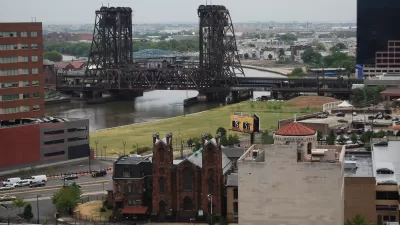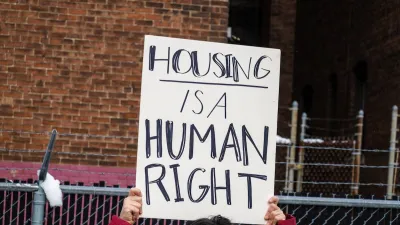Fair housing has taken national stage in recent weeks—a Supreme Court ruling and a Department of Housing and Urban Development rule now define fair housing. The New Jersey Supreme Court has also had its say on the subject, and cities are catching up.
"When it comes to the question of towns building their 'fair share' of affordable housing, the New Jersey Supreme Court could not have been clearer than my son is when arguing for fair cookie-distribution," writes Serena Rice in an op-ed for The Star-Ledger. "In the most recent Mount Laurel decision, the court restated in the strongest terms that New Jersey has a clear commitment to affordable housing, and that promise needs to be fulfilled now." The ruling earlier this year reinforced the so-called "Mount Laurel doctrine," which states that munipalities are obligated to provide a fair share of affordable housing.
Controversy over how some states calculate their municipal obligations to develop affordable housing preceded the Supreme Court decision. Rice pins the blame for the practice of undercounting municipal obligations on Robert Burchell, co-director of the Center for Urban Policy Research at Rutgers University. In a separate article, Colleen O'Dea reports on Burchell's role in the controversy leading up to the decision as well as his ongoing roll as a contractor in cities working to meet the guidelines produced by the Supreme Court ruling.
The ruling became effective last month, allowing a 30-day period for municipalities to seek approval for housing plans from the court. In the op-ed, Rice expresses concern that cities will continue to undercount and resist the mandate to provide their fair share of affordable housing.
FULL STORY: N.J. towns must do more to comply with affordable housing requirements

Planetizen Federal Action Tracker
A weekly monitor of how Trump’s orders and actions are impacting planners and planning in America.

Restaurant Patios Were a Pandemic Win — Why Were They so Hard to Keep?
Social distancing requirements and changes in travel patterns prompted cities to pilot new uses for street and sidewalk space. Then it got complicated.

Map: Where Senate Republicans Want to Sell Your Public Lands
For public land advocates, the Senate Republicans’ proposal to sell millions of acres of public land in the West is “the biggest fight of their careers.”

Maui's Vacation Rental Debate Turns Ugly
Verbal attacks, misinformation campaigns and fistfights plague a high-stakes debate to convert thousands of vacation rentals into long-term housing.

San Francisco Suspends Traffic Calming Amidst Record Deaths
Citing “a challenging fiscal landscape,” the city will cease the program on the heels of 42 traffic deaths, including 24 pedestrians.

California Homeless Arrests, Citations Spike After Ruling
An investigation reveals that anti-homeless actions increased up to 500% after Grants Pass v. Johnson — even in cities claiming no policy change.
Urban Design for Planners 1: Software Tools
This six-course series explores essential urban design concepts using open source software and equips planners with the tools they need to participate fully in the urban design process.
Planning for Universal Design
Learn the tools for implementing Universal Design in planning regulations.
Heyer Gruel & Associates PA
JM Goldson LLC
Custer County Colorado
City of Camden Redevelopment Agency
City of Astoria
Transportation Research & Education Center (TREC) at Portland State University
Camden Redevelopment Agency
City of Claremont
Municipality of Princeton (NJ)





























